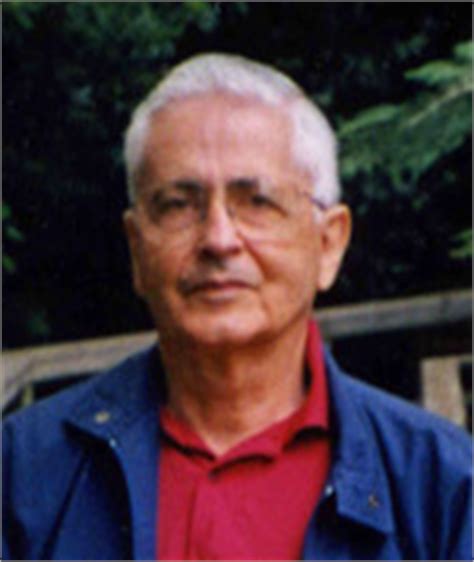A Quote by Mike Fisher
Both of my parents were raised in Christian homes, which was great. They instilled in us that God came first and they showed us what it was like to have a relationship with Christ. I accepted Christ at a young age, at the age of six years old, and just tried to play hockey and balance that.
Related Quotes
I accepted Christ at a young age, at the age of six years old, and just tried to play hockey and balance that. I had some struggles later in my teenage years. I moved away from home and struggled a little bit being on my home and finding out who I was and trying to mix that with my faith and make it real.
A Christian is one who recognizes Jesus as the Christ, the Son of the living God, as God manifested in the flesh, loving us and dying for our redemption; and who is so affected by a sense of the love of this incarnate God as to be constrained to make the will of Christ the rule of his obedience, and the glory of Christ the great end for which He lives.
The gospel is saying that, what man cannot do in order to be accepted with God, this God Himself has done for us in the person of Jesus Christ. To be acceptable to God we must present to God a life of perfect and unceasing obedience to his will. The gospel declares that Jesus has done this for us. For God to be righteous he must deal with our sin. This also he has done for us in Jesus. The holy law of God was lived out perfectly for us by Christ, and its penalty was paid perfectly for us by Christ. The living and dying of Christ for us, and this alone is the basis of our acceptance with God
There seems to be something poetically that doesn't work or is limiting when you call God 'God' in a poem. When I tried to be honest with myself in my relationship with God, Christ is, on the one hand, completely dark, he's transcendent and unknown. On the other hand, he is completely imminent and completely knowable as Jesus. Our tradition speaks of him in both ways as transcendent but also as a lover who comes to us, and the two word 'Dark One' seem to me to contain both things, the transcendence and otherness of Christ, but also like a kind of dark lover who comes to us.
... we did decide to trust Christ, but the reason we made that decision is that God had first made us spiritually alive. ... God comes to us when we're spiritually dead, when we don't even realize our condition, and gives us the spiritual ability to see our plight and to see the solution in Christ. God comes all the way, not partway, to meet us in our need. When we were dead, He made us alive in Christ. And the first act of that new life is to turn in faith to Jesus.
They are equal reality. They are two streams of present reality, both equally promised. The Christian dead are already with Christ now, and Christ really lives in the Christian. Christ lives in me. The Christ who was crucified, the Christ whose work is finished, the Christ who is glorified now, has promised (John 15) to bring forth fruit in the Christian, just as the sap of the vine brings forth the fruit in the branch.
Whenever we think of Christ, we should recall the love that led Him to bestow on us so many graces and favors, and also the great love God showed in giving us in Christ a pledge of His love; for love calls for love in return. Let us strive to keep this always before our eyes and to rouse ourselves to love Him.
At any rate, that’s how I started running. Thirty three—that’s how old I was then. Still young enough, though no longer a young man. The age that Jesus Christ died. The age that Scott Fitzgerald started to go downhill. That age may be a kind of crossroads in life. That was the age when I began my life as a runner, and it was my belated, but real, starting point as a novelist.
Being Christian is not just obeying orders but means being in Christ, thinking like him, acting like him, loving like him; it means letting him take possession of our life and change it, transform it, and free it from the darkness of evil and sin. ... Let us show the joy of being children of God, the freedom that living in Christ gives us which is true freedom, the freedom that saves us from the slavery of evil, of sin and of death!
I was very, very young when I first started acting. My first movie role I was in, I was eight years old at the time. My mom got me involved in community theater stuff when I was like five or six years old. How I learned to read was by reading the captions on TV, and I grew up from a really young age watching tons of movies and television.
In Christ alone God’s rich provision of salvation for sinners is treasured up: by Christ alone God’s abundant mercies come down from heaven to earth. Christ’s blood alone can cleanse us; Christ’s righteousness alone can cleanse us; Christ’s merit alone can give us a title to heaven. Jews and Gentiles, learned and unlearned, kings and poor men--all alike must either be saved by the Lord Jesus, or lost forever.
































